This week the Russian government airily dismissed the European Union's latest sanctions package as "neo-colonial…political blackmail".
The Russian mission to the EU said: "The Russian economy is not 'torn to shreds', attempts to isolate us on the international stage, including the Brussels platform, have failed miserably, the goal of 'inflicting a strategic defeat' has not been achieved."
The twelfth sanctions package imposes asset freezes on over 140 individuals and entities, mainly in the defence and IT sectors, but also those responsible for the forced "re-education" of Ukrainian children.
There is an import ban on Russian diamonds and restrictions on non-industrial diamonds (as coordinated with the G7), as well as a ban on selling raw materials to Russia which are needed for steel and aluminium production.
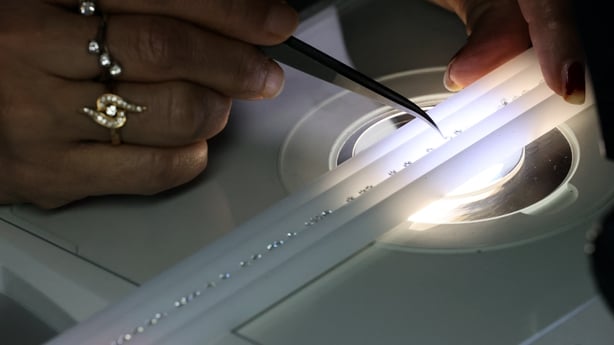
There are further export restrictions on dual-use and advanced technologies designed to limit Russia’s ability to produce lethal weapons to attack Ukraine, including drones.
The latest round of sanctions has been weeks in the making, and not without controversy.
Austria held up the agreement, allegedly because of the spotlight now being shone on Raiffeisen Bank International, the Austrian bank blacklisted by Ukraine as a sponsor of the Russian war effort because it has continued to operate in Russia (indeed, its operations there accounted for half its profits).
A further aim of the new sanctions is to tighten existing restrictions and to prevent companies and countries from circumventing them.
Evading the oil price cap with the help of a 'shadow fleet'
Oil is a case in point, given the huge revenues Russia earns from fossil fuels.
Exactly one year ago, the G7 countries introduced an oil price cap. The idea was to allow Russia to keep selling oil, but at a reduced price, since a full-scale ban would have sent the price of oil soaring.
The EU and G7 have leverage. Combined, they control most of the globe’s shipping and insurance services. Under the cap, countries such as India and China would have to agree to pay no more than $60 per barrel (€55) for Russian crude if they use G7 tankers and insurance services.
In the first half of this year, it appeared to be working: Russian crude was selling for around $40-$50 per barrel (€36-€46), meaning smaller revenues for its war effort.
However, since then the average price has climbed to $80 per barrel (€73), mainly due to the fact that Russia has switched to using a "shadow fleet" of several hundred tankers, vessels that have obscured their origins and registrations, and which are not insured.
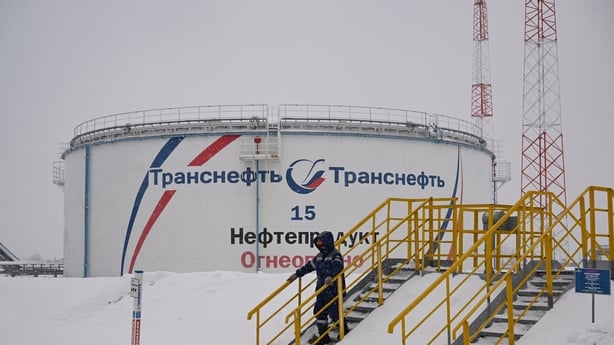
The Kyiv School of Economics (KSE) estimated in October that Russian oil earnings could reach $178 billion (€162bn) this year due to the use of the shadow fleet, and not the $153bn (€139bn) estimated back in July.
If sanctions circumvention worsened, Russian oil revenues would reach $200bn (€182bn) next year, and $197bn (€180bn) in 2025.
"Russia’s significant oil revenues are fuelling record military expenditures for the coming year. To prevent further escalation, there is a pressing need to enhance sanctions and establish effective monitoring," said Natalia Shapoval, chair of the KSE Institute.
With Russia finding other ingenious ways of circumventing sanctions, the EU earlier this year appointed Irishman David O’Sullivan, a former senior EU official, to spearhead global efforts to stop countries acting as intermediaries in the sale of military or dual-use goods to Russia.
From his office in the European Commission’s Berlaymont headquarters in Brussels, Mr O’Sullivan acknowledges the difficulties in making sanctions bite given the alacrity with which third countries and unscrupulous actors will help Russia keep its war machine going.
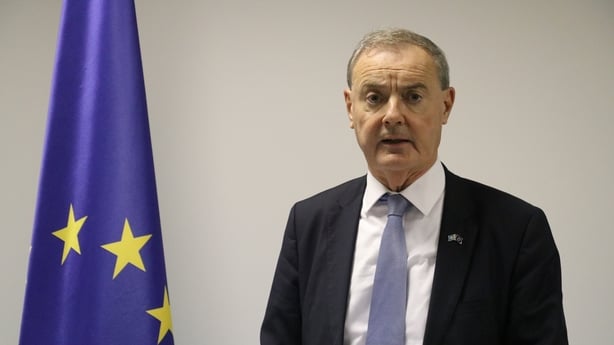
Since the spring Mr O’Sullivan has been traipsing the world, alongside UK and US counterparts, knocking on the doors of sometimes indifferent governments, and trying to use the powers of persuasion.
"The objective [of sanctions] is threefold," he says. "To deny Russia access to the technology needed to make smart and more lethal weapons, to deprive the Russian government of revenue needed to fund the war, and to put a high price on the Russian industrial and economic structure as a response to their unjustified aggression against Ukraine.
"Anytime you have sanctions you have circumvention and evasion. It’s as sure as night follows day. You will never completely eliminate that kind of behaviour because there's money to be made and there's always ingenuity in the pursuit of profit."
Despite that, Mr O’Sullivan believes Russia is struggling to secure the kind of technology needed to produce smarter and more lethal weapons for the battlefield, and that gives Ukraine an advantage, given that it has been equipped - although not sufficiently, Kyiv would argue - by NATO countries.
"You see Russia reaching out to Iran or to North Korea, and the quality on the battlefield of their weapons is deteriorating. And this gives Ukraine a certain advantage technologically on the battlefield," he says.
Mr O’Sullivan points to the freezing of Russian central bank assets and the impact so far, and estimates that the Kremlin has been deprived of €400bn that would otherwise have been spent on the attack on Ukraine.
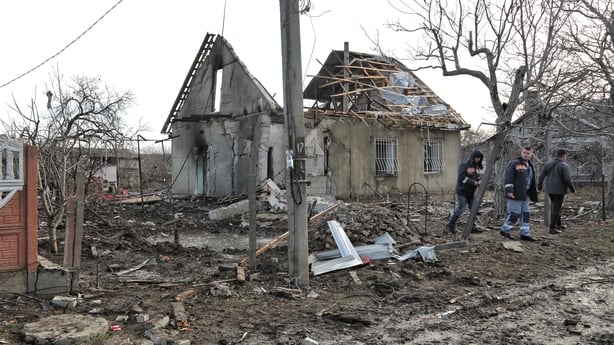
"They used to run a very healthy government surplus, they're now running a deficit. They're spending about 10% of GDP on the military.
"They're basically cannibalising their economy to turn it into a war economy where everything goes into the unproductive military sector, and less and less is going into productive investment," he said.
"The growth prognosis over the next few years is very weak. So, it's not exactly the blowout that we might have hoped for, but it's definitely a slow puncture. The air is escaping from the tire and sooner or later, it's going to be impossible to drive the vehicle."
Identifying which countries are helping Russia evade sanctions is not difficult.
EU exports to Kazakhstan, Uzbekistan, Georgia, Azerbaijan, Armenia and Kyrgyzstan soared 80% in the 18 months following Russia’s invasion of Ukraine, according to Eurostat, with every suspicion that these goods were being shipped on to Russia.
Kazakhstan, for example, doubled its imports of European machinery and transport equipment in 2022 without any obvious signs of a corollary increase in local production activity.
Mr O’Sullivan has been focusing his diplomacy firstly on countries which might have been expected to align with EU and US sanctions but did not - Turkey and Serbia, which are both EU candidate countries - and then those which might be persuaded when the glaring nature of sanctions-busting has been pointed out.
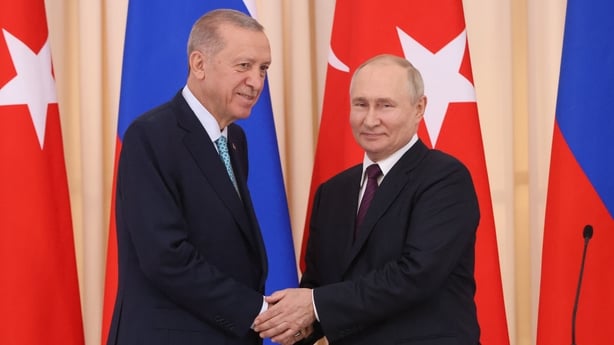
"The basic discourse is for them to say, 'we're not going to adopt your sanctions, but we don't want to be a platform for circumvention,’" says Mr O’Sullivan. "And we certainly don't want anything to do with feeding the Russian military machine.
"And I then can show them the statistics that show that they are indeed responsible for the re-export of some of the technologies that are key to the Russian military.
"In most cases they have said yes, we will stop this. Now we've had Kazakhstan, Uzbekistan, Armenia, Serbia, the UAE - they are preventing the re-export of the kinds of products that can be found in Russian weapons on the battlefield.
"So they're not adopting our sanctions, but neither do they want to be taking sides in this military conflict," Mr O’Sullivan said.
Global game of whack-a-mole
However, it has, he says, become a game of global whack-a-mole.
"We can see that the re-export of these products is going down and, in some cases, has more or less stopped.
"That doesn't mean Russia can't get these things through other ways. Every time you close one loophole, you have to quickly see if a new one is opening up. And so, it's a constant following of the trail of trade to try and shut off these exports.
"But we are, I must say cautiously and without complacency, having some success," he said.
Mr O’Sullivan acknowledges that Russia has found a way to export oil through a shadow fleet and that this has to be looked at by the G7.
"[The rising price of oil] obviously makes the shipping of oil a more profitable business. We have identified that there are new fleets, frequently of very old and decrepit vessels, who are being ‘insured’ by Russia and China.
"Now, if I was a third country through whose waters these vessels were travelling, and one of them had an ecological accident and spilled a large amount of oil, I'm not sure what that insurance is going to be worth," Mr O’Sullivan said.
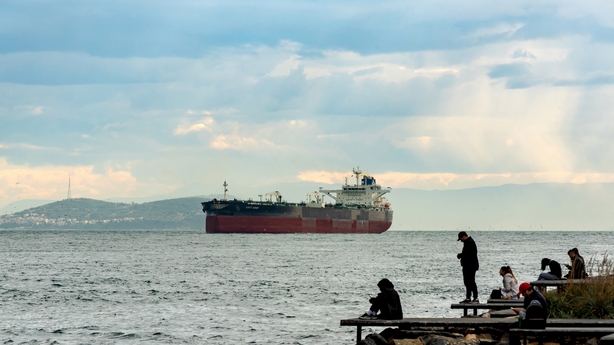
"The G7 are on this and are actively looking at how we might target those loopholes in the system to see if we can list or come after the shadow fleets or check exactly how this is working and try to reduce it. It is an issue and it needs attention."
The twelfth sanctions package this week included new measures to tighten the oil price cap, including closer monitoring of the sale of tankers to third countries, as well as more detailed certification requirements for tanker owners.
On the question of how EU member states are complying with sanctions against Russia, Mr O’Sullivan says all capitals - including Ireland - are taking their obligations seriously.
In July, the Irish Department of Trade said it was investigating how components that appeared to be made by a US company with a factory in Tralee ended up in an Iranian Shahed drone shot down over Ukraine.
"When you're talking about sanctioned products, these are European products. So inevitably, some of them may be Irish, some of them are German, some of them are French," Mr O’Sullivan said.
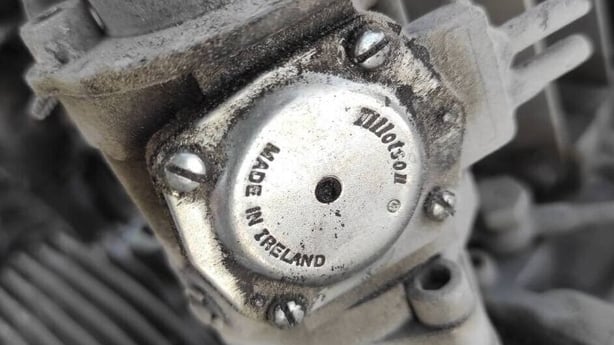
"The question is, how did they get to Russia? In many cases it's that companies didn't know. They were exporting in good faith to somewhere else, to the UAE or to Türkiye, and then it was transhipped.
"We’re going back to member states, identifying companies whose products we know are ending up in Russia, through intermediaries, and we're encouraging the national governments to talk to these companies," he said.
"Maybe companies are not doing quite as much due diligence: you used to send stuff to Russia, now you get an order from Kazakhstan. And maybe you should ask yourself, exactly who in Kazakhstan is buying the product and why?
"Increasingly, our companies are understanding that they have to be very careful, because it can have criminal consequences. Breach of sanctions is actually a criminal offence," Mr O’Sullivan said.
Twelfth sanctions package
In the twelfth sanctions package companies are now obliged to make the ban on re-exporting sensitive goods to Russia part of the contract of sale. These include goods related to aviation, jet fuel, firearms and hi-tech components used in Russian weapons systems.
The latest sanctions package has come at a critical time. The Kremlin has been gloating that Ukraine will run out of weapons, and has hailed the Republican Party’s blocking of $60 billion in military aid and Hungary’s Viktor Orban blocking €50 billion in financial support.
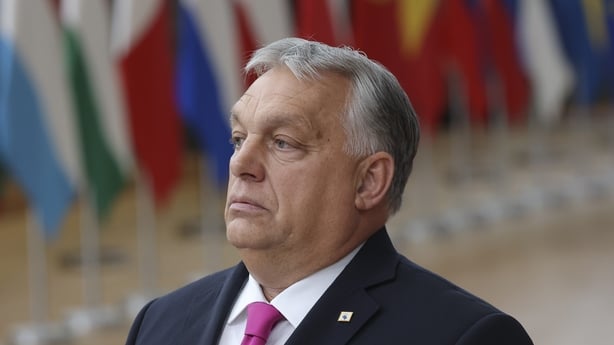
Russia’s circumvention of the price cap on oil, and its ability to divert sales away from Europe to India, China and Turkey, have been combined with Russia getting more cash from refined oil products which are shipped into Europe via those third countries.
According to Russian figures, its economy shrank by only 2.1% in 2022, much less than expected, with the IMF estimating the economy will actually grow by 2.2% in 2023 and by 1.1% next year.
At the same time, Russia will increase its defence budget by 70% next year, amounting to €107 billion, or 6% of GDP (compared to 3.9% this year).
Is there a risk that the oft quoted (if contested) notion of Ukraine fatigue might extend to economic sanctions?
"The success story of sanctions is the fact that we've been able to agree 12 packages, which we have to agree unanimously," Mr O’Sullivan said.
"We've had a remarkable degree of consensus around this. I don't know how many people really thought sanctions would bring Russia to its knees immediately.
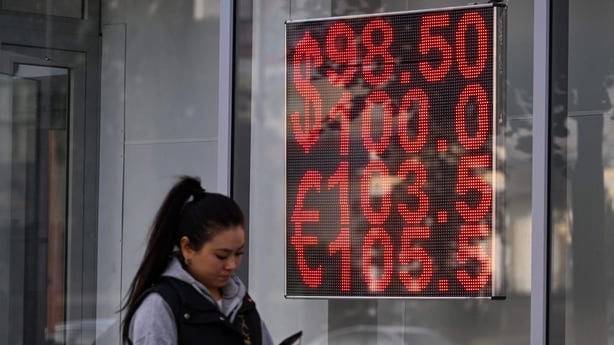
"But the Ruble has been devaluing, the [Russian] central bank is now struggling to control a high rate of inflation, but under pressure from the government to keep interest rates lower - which is contradictory," he said.
"Government revenue is down and they're now running a major deficit. Industry productivity is slowing, 1,000 western companies have left, they've had a massive outflow of some of their most talented young people, particularly IT specialists who are now setting up in Kazakhstan, Uzbekistan, Turkey, the UAE. These people are probably never going to go back.
"Of course, we would have wished the impact of this to be quicker, because there's a war on - people are dying," Mr O’Sullivan said.
"Even as we speak, there are missiles falling on Ukraine and every day people are dying. There is an urgency about this. But, the grinding, continual pressure of sanctions is all going in one direction, which is to squeeze the Russian economy and undermine their ability, both technologically and economically, to continue to wage this war, except at a massive cost."






